2013 Camden International Film Festival Course Experience
Don't wanna be here? Send us removal request.
Text
Simple

The film, "Elemental," from director Gayatri Roshan is a simple film about three people all trying to better the environment they love. It was beautifully shot and told some interesting stories, but I'm not sure it would qualify as an environmental advocacy piece. Yes, the people in it were environmental advocates, but is that enough?
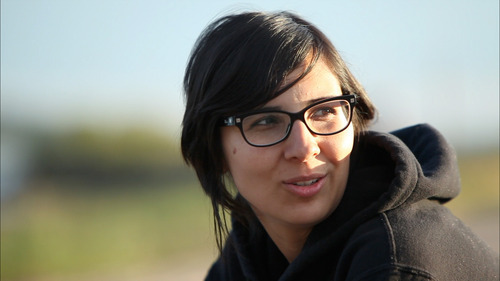
For someone who already considers themselves an environmentalist or someone who cares about nature and our relationship with it, this film probably makes them feel good, but it doesn't leave anyone else with an end goal or take home message. For a film to advocate for something, it needs to inspire some action or change. This film tells a story in a narrative form, but ends at that.
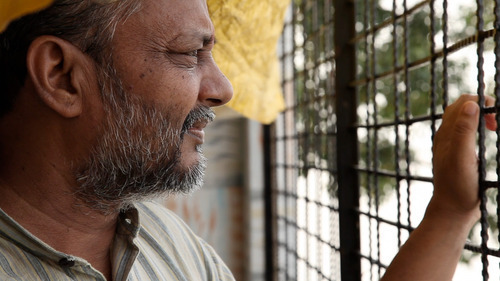
In order to have an environmental call to action, the film would have to somehow bring the stories out to a broader level of action. The main characters seem like they are very much on a one person crusade to save their respective elements, leaving the audience to just watch them and hope they succeed. If the conflicts were shown in a different light, like issues that truly impact everyone and have many different solutions that we can all partake in, then maybe there would be a call to action.
Regardless, I liked the film. It was nicely done and left me with some good ideas of techniques I would like to use (using a character's narration to describe the other characters in a round-a-bout way, even though they've never met). It's just a different kind of film, a simple one.
0 notes
Text
Food Industry Too Big to Fail=Food Industry Too Big
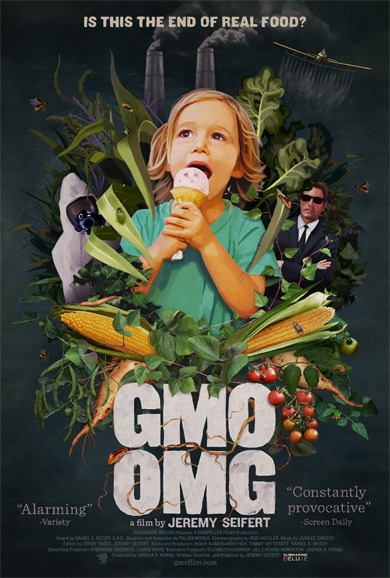
"GMO OMG," is a film by Jeremy Seifert that examines the business behind genetically modified organisms and what they are doing to our food, our culture, and us.
The films call to action seems to be to choose food that does not contain GMO's, but in the Q&A after the film with Seifert, he was hesitant to define exactly what he wants people to do and said the info graphics at the end were not his choice. He said that everyone has their own talents and ways to help solve the problem, but I can't help but think that maybe he isn't pinning down the call to action because he realizes that the film isn't effective at pinning it down either.
It was more of a shock film that used beautiful footage contrasted with disturbing subject matter (his children running through a corn field in hazmat suits) to bring the issue to people's attention. However, once you know about the issue, you are left wondering what could be done? As Bill McKibben said in the film about a food industry deeply entangled in GMO's, "Anything too big to fail is too big." Perhaps it's also too big to change?
If someone had never heard of GMO's, then this film would give them a jumping off point, but I'm not sure those people would even show up to watch the film in the first place. Generally, the people who would be interested in it already know the deep issues at hand and their complex nature and would probably leave feeling like the film was a very superficial look at GMO's.
The personal involvement of the director and his family is the best part about the film. If nothing else, you get a good picture of the tension between wanting to live healthy and wanting to still fit into a society that is structured around GMO's. You could also uplift your GMO protesting spirit with the lovely Mumford and Son's dance montage at the end.
0 notes
Photo
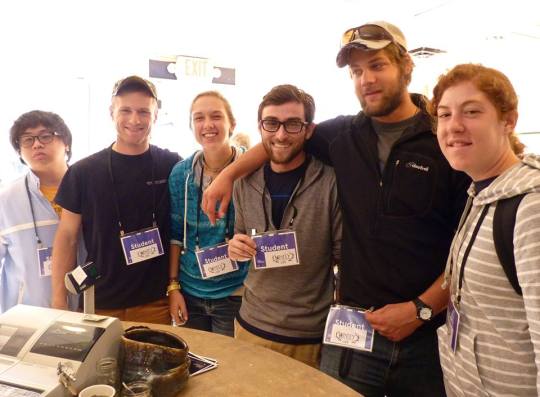
Made it on the Zoot facebook page with some good company.
1 note
·
View note
Text
Outside the Box
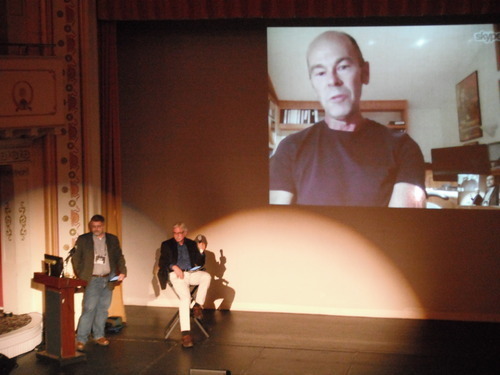
The final movie of the festival was "Pandora's Promise" by director Robert Stone. The film and following Q&A promised some sparks as Unity College President Stephen Mulkey was going to be sitting in on the questions. He is a well known opponent of nuclear energy while the film advocated a second look at the idea.
I was really surprised by the science offered up by the professionals in the film, but I have to admit, it was persuasive. The director used graphics and demonstrative techniques like a radiation meter to really drive the point home.
During the Q&A, President Mulkey was persistent, but I agree with Stone when he said that the film is 90 minutes and was meant to spark a conversation. It was refreshing to hear the other side of the argument. If people can take both extremes, consider alternative views rather than following old ones blindly, and come out with renewed excitement about "environmentalism," then I consider the movie a success. It managed to make me think about what I have believed and how I can challenge myself with new ideas, so yes, it was a success.
0 notes
Photo
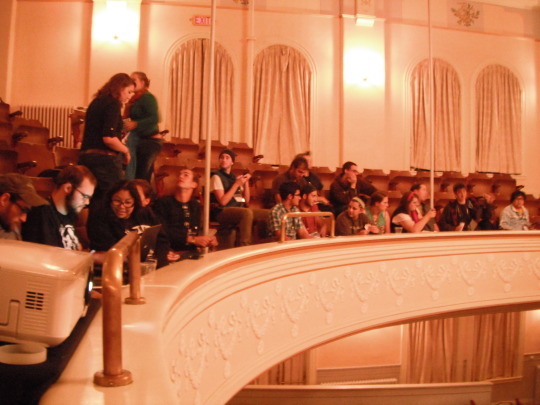
Unity College crew getting ready for the screening of "Pandora's Promise." Get on our level.
0 notes
Text
What's Left Behind and Who Decides?
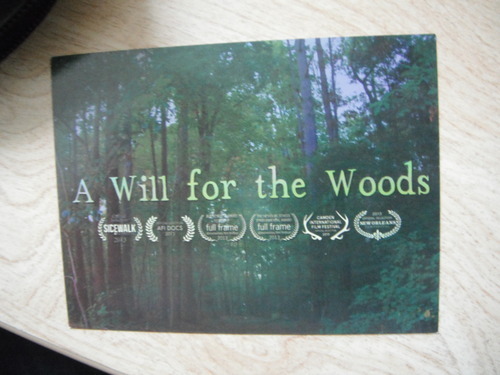
I cried. This film was about accepting death and using it as an opportunity to protect nature through a green burial instead of fighting it with traditional burial. Clark was a very motivating character and the film makers' access into the end of his life gave them the material and feeling they needed to show the importance of end of life decisions. How can you watch that film, with all its emotion, and not at least reconsider what you want to happen when you die? You can't. Their use of Clark's music throughout the film made it even more sentimental. This film shows the importance of really diving into your subject's life. The film makers went through some rough times, but the film transcends the issue at debate because of it. It is all about the human experience.
1 note
·
View note
Text
Mining the Past
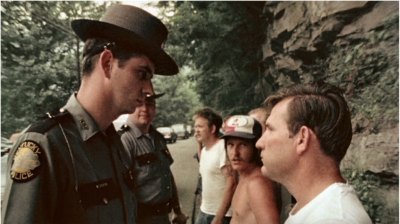
As part of the Then and Now program at CIFF, Barbara Kopple's film, "Harlan County USA," was shown. When you think about the film and the context surrounding it back in the seventies, it is easy to discern its call to action. Kopple saw the struggle of the miners in an area that depended on the industry, yet was being torn apart by it at the same time. The pressure was building and she saw the potential to make a difference with a documentary. After filming the strike and its resulting conflict, she used the film to help raise awareness and money for the miner's work union. She gave a voice to the people who felt they had none. Looking back now, the call to action seems to be don't let history repeat itself.
0 notes
Photo
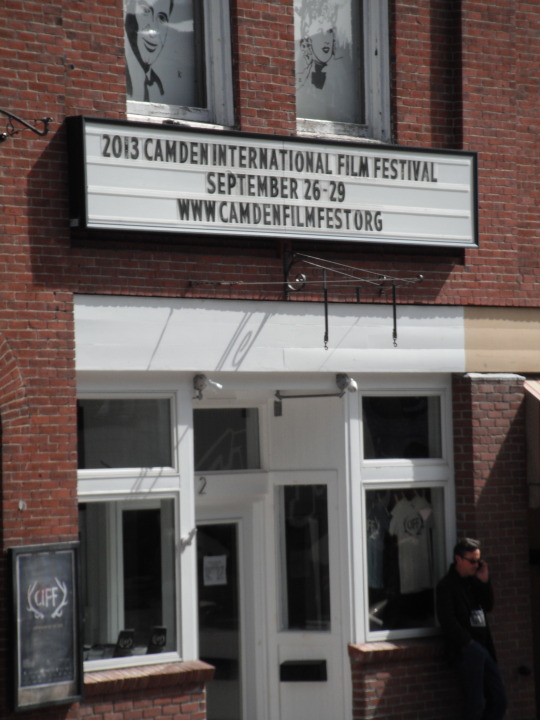
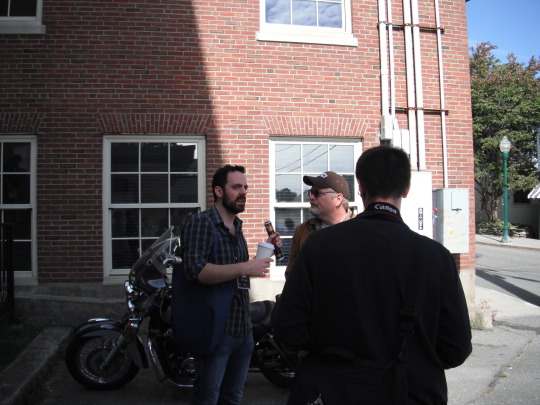
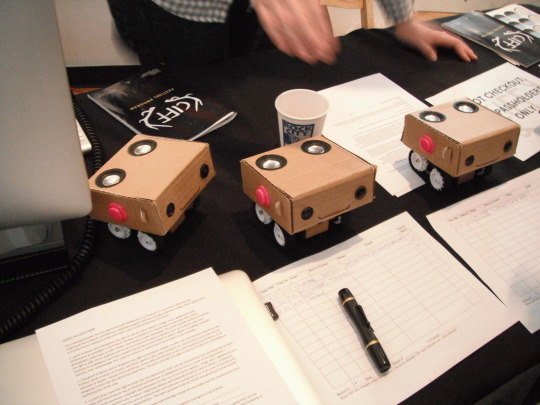
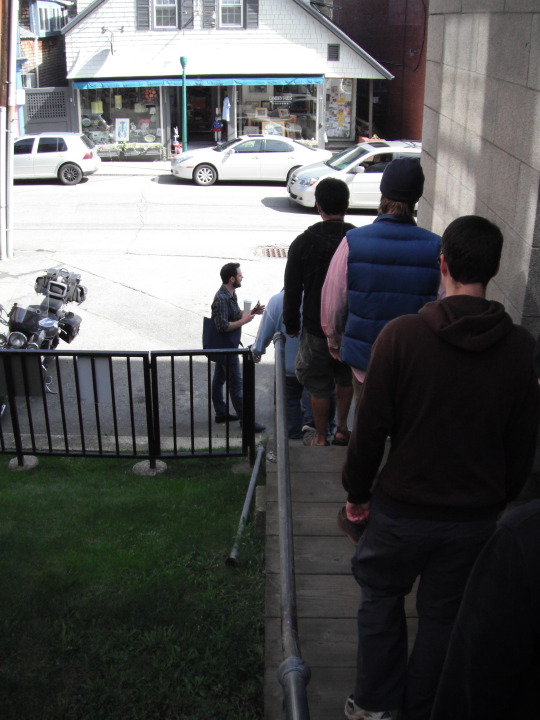
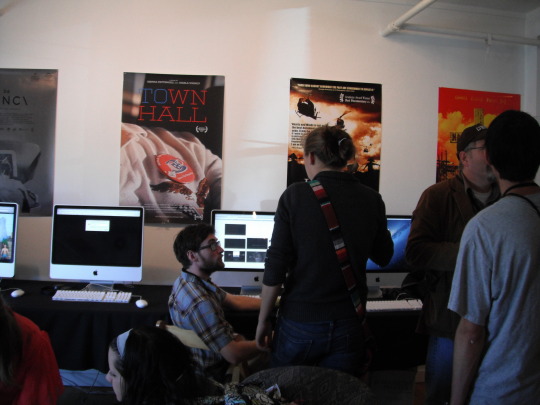
Bayview Street Cinema, a Ben Fowlie spotting, cardboard robots that want to know how you feel, and some down time in the CIFF Hub.
2 notes
·
View notes
Text
Artful Apocalypse

This was one of my favorite films. Director Daniel Dencik's use of beautiful landscape, humor, and the romantic style made this film inspiring and fun. Setting played a big role in this movie, with the Greenland landscape becoming a character in and of itself. Here were scientists and artists thrown together in a strange and empty place, but in the end, you see that it isn't empty and it has a lot to show those who explore it. In the Q&A afterwards, Dencik said that he doesn't view the film as an environmental one, but rather it is a nature film, getting back to the roots of the genre. "It's meglomaniac to think we can change it. I wanted it to be more of a celebration, a romantic idea."
When asked how he got into film, he said, "Film is just a bad excuse. I consider myself a writer." You can tell he has a writing background through his use of drama and the way the film was largely character based. I also think it's funny that he described his film as cynical optimistic and that he wanted to make Melville proud. I think its safe to say that he would be proud.
0 notes
Video
Agreed.
youtube
New theme song to my life, thank you CIFF!
2 notes
·
View notes
Text
Bigger than We Are
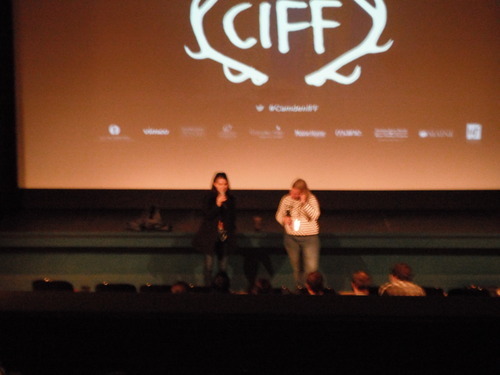
We saw "Big Men," by director Rachel Boynton. Her portrayal of the oil company was unique among other films I've seen in that they seemed very human and you could connect with them outside of the business world. After the film, she was asked what she wanted the movies to say and she said, "It's a movie about what motivates us. Who doesn't want to be bigger than they are?" This gets to the root of a lot of social issues and it's a nice way of thinking about such an ugly problem. We can't really separate ourselves from people we think are evil. It's all a matter of degrees. Her technique of interviewing Musselman after he was fired was useful because it lowered his walls and he was more apt to talk to her. I also liked how she said that her film is not objective, and that even though she has a journalism background, she hates journalism and didn't want to be unbiased.
0 notes
Photo
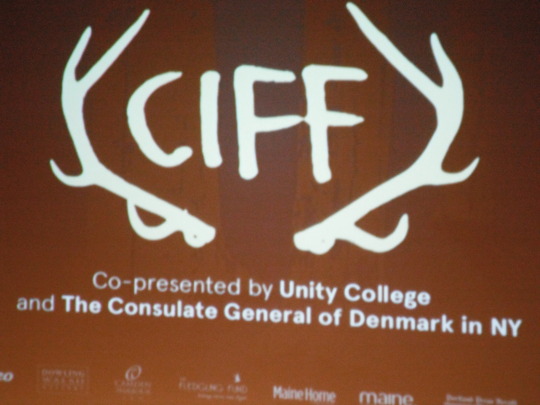
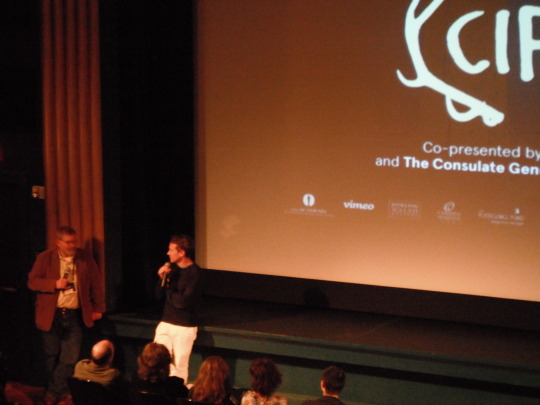
Unity College co presenting the film "Expedition to the End of the World," by Daniel Dencik with John Zavodny rocking the Q&A.
0 notes
Photo


Pizza for the night in Rockland. EAT
0 notes
Photo
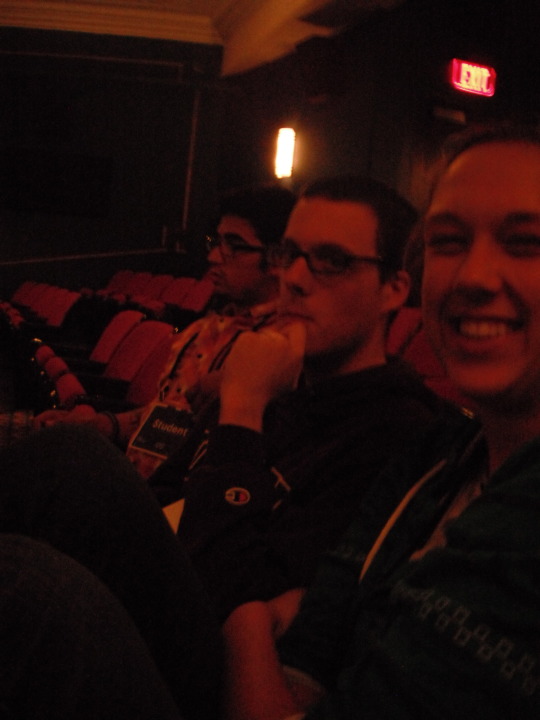
Classy people at the Strand Theatre.
2 notes
·
View notes


